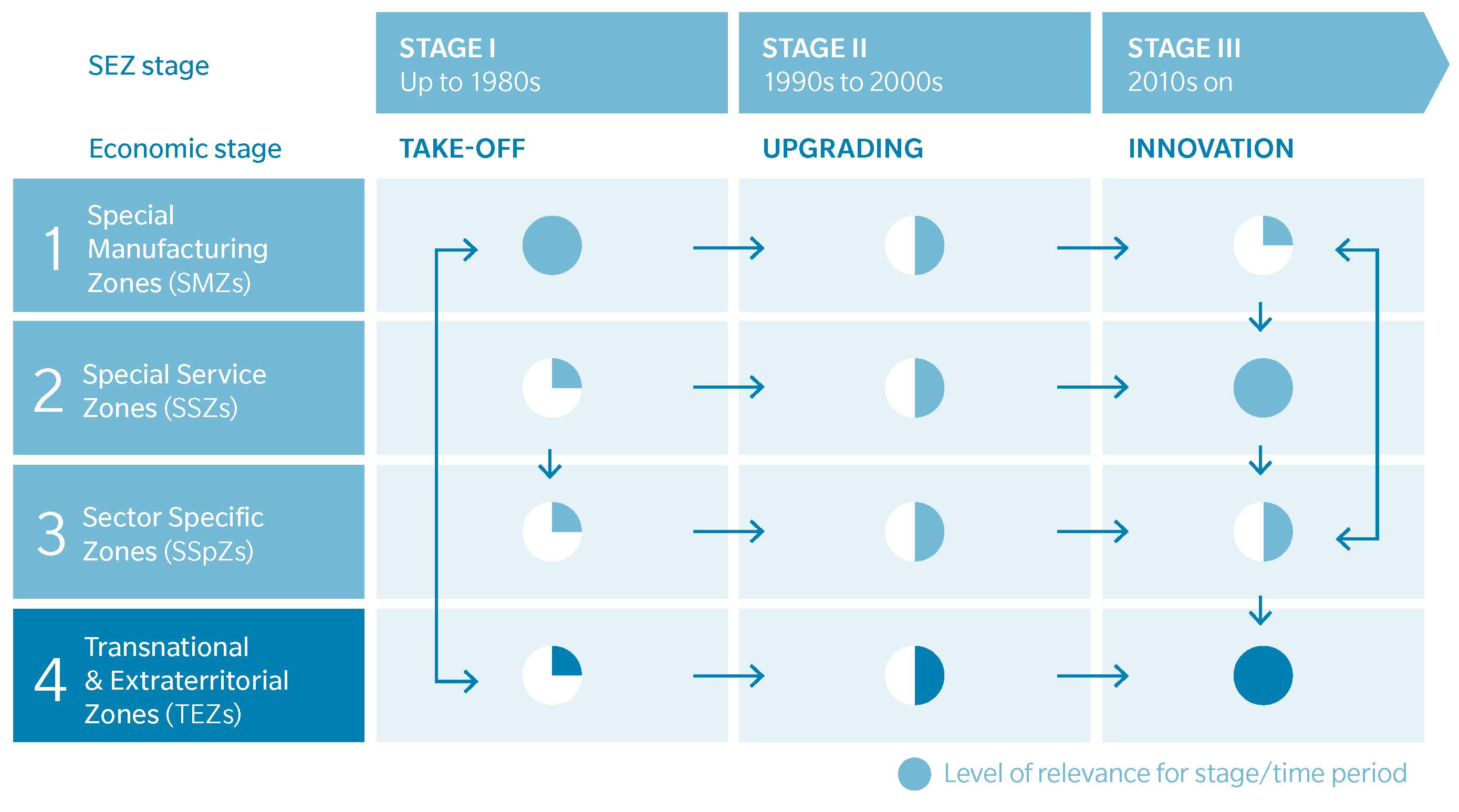Special Economic Zone (SEZ) is a geographically delineated area subject to differentiated regulation and administration from the host country in which it resides, for the purpose of attracting foreign direct investment in economic activity that could not otherwise be achieved.
SEZs have evolved from a relatively simple proposition to an increasingly diverse range of propositions, designed to achieve more specific development objectives. SEZs play varied roles in facilitating national, regional and local economic development and global economic connections, with some remarkably successful in doing so.
There are those however, that are failing to achieve even a fraction of their intended objectives. The sheer number of SEZs, and their uneven success raises two critical questions that this report shall address:
Are SEZs still relevant and effective as a development strategy in this crowded and connected global marketplace?
What is required for a SEZ to succeed in such shifting national and global economic conditions?
Typical SEZ Evolution Paths






